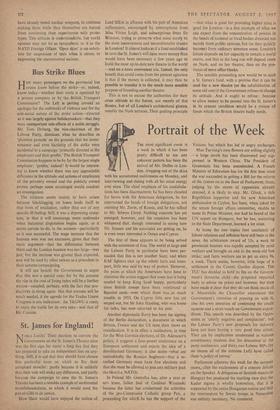on reading habits
a time (probably) when literary editors have been more lynx-eyed, or critics more catholic and acute, than at present. But, given the present spate of books, only a small percentage can be noticed at all: and a jacket, plain or coloured, with nothing on it but the title, 'a first novel by,' and the name of the author, could hardly attract the attention of literary editors and critics, however brilliant—or (and this is perhaps of almost comparable importance) the public. What to do, then? The publisher might, of course, express his own simple-minded enthusiasm : but then the reviewer would feel obliged to use some of his limited space for an attack on the 'blurb,' and that would seem unfair to the author. Or, in the case of an American book, he might quote the American notices: but then the reviewer would feel obliged to attack American critical standards, and that would seem etc. Finally, he might, in the case of second novels, reproduce English reviews of the first : but then the reviewer would feel obliged to attack the hysteria of his colleagues ... or even, as on an occasion I seem to remember. what turned out to be his own. and become, say, literary editors: we should then be at the receiving instead of at the paying end.—Yours
faithfully, VICTOR GOLLANCZ
14 Henrietta Street, WC2
SIR,—Perhaps the late Dr. Samuel Johnson might be permitted to join in your timely correspondence On the unhappy custom of soliciting 'puff-balls'? Said Dr. Johnson (March 26, 1768: at Oxford), 'If I praise a man's book without being asked my opinion of it, that is honest praise and may be depended on. But when an author asks me if I like his book and I give him something like praise, it must not be taken as my real opinion.'—Yours faithfully, COLIN HOWARD
The Grove, Yateley, Hants
CIVIL LIBERTIES






























 Previous page
Previous page